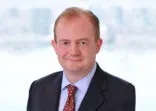“We are typically focusing on no more than a dozen mutual funds at any one particular point in time and 85% of our flows go into those 12 funds,” Bacon said, speaking on a panel during the Asia Securities Industry and Financial Markets Association (Asifma) conference in Hong Kong last week.
Some fund managers ask how they can get onto the bank’s platform.
“Even if you get on our platform tomorrow, that doesn’t mean you’re going to get any assets. Given the small number of funds that we are focusing on at any one point in time, it’s difficult.”
Bacon said that the turnover of the funds on the list is relatively low, adding that if the products continue to be relevant in the context of the bank’s views, there is no reason to change the list.
Fund managers who are serious about promoting their funds through the private banking channel should be “more specific” when talking to private banks, he said.
He acknowledged that some fund managers are already experienced and know what to say when promoting their funds.
“They will come in and say ‘I know from a top-down perspective you are looking at this area. We really think we have a capability here, a persistent source of alpha generation strategy that is going to be interesting for you.’”
However, these managers have to prove that they are better than the current funds on the list.
“If you are better or demonstrably different, then that is something that we really want to look at.”
Non-stop fixed income
On the equity side, Citi’s high net worth clients have become more attracted to sector-focused or thematic funds and are not buying the broader global equity funds. “This is where you saw themes like robotics, AI, biotech and healthcare picking up during the year,” he said.
Bacon said fixed income products in general continue to be in demand by high net worth individuals, particularly diversified global fixed income funds.
“We’ve been a little bit surprised with the continued high volume of flows into diversified global fixed income funds, given where we think we are in the fixed income cycle.”
Other banks, such as HSBC and Standard Chartered, are also seeing clients pouring money into fixed income funds.
“There has been a lot of money flowing through fixed-income themes,” Elaine Lai, head of wealth development for retail banking and wealth management for Hong Kong at HSBC, said previously. “What happened is we are seeing a lot of talk about the interest rate cycle changing, so that is an area where we have to bring in a solution. We are thinking of shorter duration fixed income.”
Bacon is seeing interest in emerging market debt, which is relatively new among Asian nvestors.
“This is an asset class that high net worth clients in Asia have not historically been allocating to, and we made a big call [to offer the asset class] at the beginning of last year,” he said.
He continues to see large allocations to EM debt, especially since performance has been strong in 2016 and this year.
Commenting on multi-asset funds, he said that although these products have become popular, the appetite is coming more from retail banking clients.
“The reason for that is a practical one. The relationship manager within the retail bank maybe has 300-500 clients, and he or she is not going to spend the time to build a customised portfolio of mutual fund exposure using multiple managers around some sort of asset allocation. They are just going to buy one fund which does everything.”
On the alternatives side, Bacon is also seeing a pick-up in demand for hedge fund products. “We’ve seen high-quality risk-adjusted returns from many of the managers that we’re focusing on, and our sales volume has gone up dramatically.”
Clients tend to favour fundamental equity long-short hedge funds rather than macro or fixed income hedge funds.
Bacon also commented on the bank’s in-house separate accounts business, which he said has seen “massive growth” of assets in its Hong Kong-China equity strategy since the bank launched it 18 months ago.

















